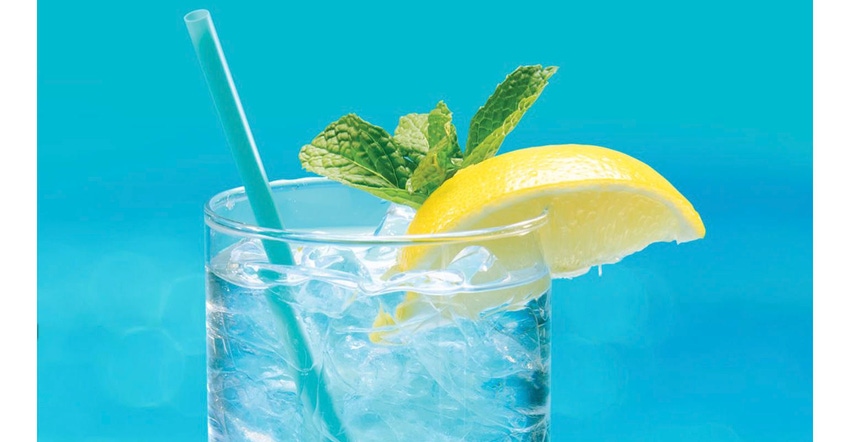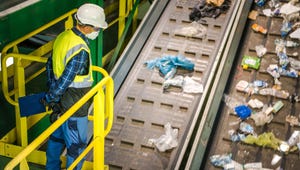WinCup will send free samples of its phade straw, made from Danimer Scientific’s Nodax PHA, via social media campaign.
December 23, 2020

Did you know there was an annual National Drinking Straw Day? Me neither. It falls on Jan. 3, 2021, the date in 1888 when Marvin C. Stone received a patent for the paper drinking straw, or so the story goes. WinCup is using that august occasion to promote its biodegradable straw, phade. Dubbed “the last straw you will ever need,” WinCup will send free samples of the straws to consumers who “like” phade on Instagram or “friend” phade on Facebook on Jan. 3, while supplies last.
The phade straw is made from canola oil–derived polyhydroxyalkanoate (PHA) and is biodegradable in marine environments and compostable in home and industrial environments, said the company.
“Phade is truly in a class of its own,” said WinCup CEO Brad Laporte. “This unique product biodegrades and composts in a matter of months while meeting consumers’ needs and high expectations without sacrificing performance. Phade is created with natural biopolymers, allowing it to return to nature as safely and as quickly as possible. WinCup’s scalability allows us to make this straw available nationally,” added LaPorte.
The claims of biodegradability have been certified by TUV Austria, a globally recognized independent third-party certification body. TUV determined that the phade material will biodegrade in a marine or soil environment and compost in both industrial and backyard settings. The Biodegradable Products Institute has also verified that phade is compostable in an industrial environment, according to WinCup, and it complies with FDA’s food-contact safety regulations for cold drinks.
Key to the technology is the canola oil–based substrate PHA created by Danimer Scientific and introduced in 2018. The patented Nodax PHA is the first of its kind to be used at the industrial level. As reported in PlasticsToday last September, Danimer and WinCup received the 2020 Innovation in Bioplastics Award from the Bioplastics Division of the Plastics Industry Association in recognition of the joint development.
Straws actually have a long history. The earliest known drinking straw, according to some historians, dates back to at least 2000 BC. It was found in a Sumerian tomb and made of gold and precious stones. Fast forward a few thousand years, and suddenly plastic straws were everywhere, rapidly replacing Mr. Stone’s venerable paper-based invention. More recently, plastic straws fell out of favor in some circles, causing fast-food outlets and restaurants to go back to the future and attempt to re-introduce paper straws. They quickly discovered that plastic conquered the market for good reason. Paper straws get soggy and break apart, and they are ill-equipped to deal with milk shakes and Frappuccinos. Vegetable-based polylactic acid straws also came along as "green" alternatives, but they are not marine biodegradable or home compostable, said WinCup. “Businesses are looking for environmentally-friendly products that meet customers’ expectations,” said Michael Winters, WinCup President and Chief Revenue Officer. “Without fail, those who try a phade straw are amazed that a product so sturdy has such a minimal impact on the environment.”
And on Jan. 3, you can judge for yourself without spending a dime, while supplies last.
About the Author(s)
You May Also Like




